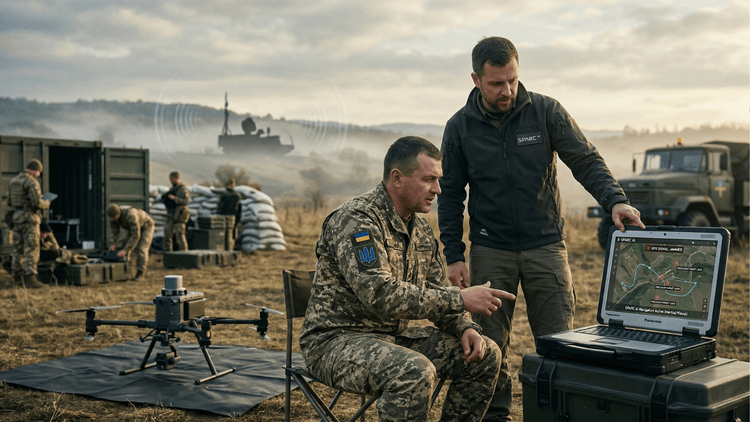Billions in Defense Spending: Germany’s Strategic Shift Takes Shape
Germany’s historic military revamp signals a new era in European defense, unlocking billions to strengthen its armed forces amid rising global tensions.

Germany is at a turning point in its military strategy, unlocking billions in funding to bolster its armed forces as Europe navigates an era of heightened geopolitical tensions. The decision marks one of the most significant defense investments since the Cold War, with Chancellor Friedrich Merz spearheading efforts to transform the Bundeswehr into a force capable of confronting emerging threats.
A Shift in European Security
For decades, Germany maintained a cautious approach to military spending, prioritizing economic stability over defense expansion. However, the full-scale invasion of Ukraine in 2022 shattered the illusion of lasting peace in Europe. The crisis prompted a strategic reassessment, leading to the “Zeitenwende” — a turning point in Germany’s defense policy.
Former Chancellor Olaf Scholz initially paved the way for increased military spending, introducing a €100 billion special fund for the Bundeswehr. However, the sluggish implementation and internal political struggles hindered progress. Now, with Merz at the helm, Germany is pushing forward with an aggressive plan to modernize its military, including a constitutional amendment that could unlock as much as €600 billion over the next decade.
NATO Commitments and the Road Ahead
Germany has long faced criticism for failing to meet NATO’s defense spending threshold of 2% of GDP. It wasn’t until 2024 that the country finally met this benchmark after years of underinvestment. Under Merz’s leadership, Germany aims to go beyond the minimum requirement, setting a new target of 3.5% of GDP for defense—a move that would place it among the top military spenders in Europe.
Brigadier General Ralf Hammerstein, speaking during a NATO training exercise, acknowledged the challenges ahead but expressed confidence in the Bundeswehr’s potential. “We have highly motivated soldiers and a strong foundation. Now, we need to scale up and ensure that Germany plays its part in European security,” he said.
Military Readiness and Challenges
Despite the financial boost, Germany’s military still faces significant hurdles. A recent report by the Parliamentary Commissioner for the Armed Forces, Eva Högl, painted a bleak picture of the Bundeswehr’s readiness. Recruitment efforts have consistently fallen short, with troop numbers stagnating at approximately 181,000—far below the 203,000 target set for 2025. Additionally, outdated infrastructure and equipment shortages continue to undermine operational effectiveness.
The report estimated that €67 billion would be required for critical infrastructure upgrades, with barracks and training facilities in dire need of modernization. Hammerstein believes that increased funding is only part of the solution. “It’s not just about money. We need a renewed focus on training, recruitment, and efficiency in spending to ensure that every euro strengthens our military capabilities,” he stated.
The Debate Over Conscription
One of the most contentious topics in Germany’s defense strategy is the potential return of conscription. The country suspended mandatory military service in 2011, but with recruitment falling short, military leaders are reconsidering the policy. Hammerstein, who joined the Bundeswehr as a conscript in 1992, argues that some form of obligatory service could help bridge the personnel gap. “We need a steady pipeline of trained soldiers. A form of national service could be the answer,” he suggested.
Public Opinion and Political Will
For a country with a complex military history, public sentiment towards defense spending is shifting. A recent ARD poll revealed that 66% of Germans support increased investment in the Bundeswehr, while 59% agree that Germany should take on additional debt to strengthen its military and infrastructure. This marks a stark contrast to the pacifist tendencies that have long influenced German defense policy.
Merz has seized on this changing mindset, declaring that Germany must reclaim its role as a pillar of European security. “Germany is back,” he asserted, emphasizing the nation’s commitment to defending freedom and stability in Europe.
A Defining Moment for Germany
The decision to unlock billions for military expansion represents a defining moment in Germany’s post-Cold War history. The Bundeswehr is set to undergo its most ambitious transformation in decades, with increased funding, strategic reforms, and renewed NATO commitments.
While challenges remain, the shift signals a new era in European defense, with Germany stepping up to meet the demands of an uncertain geopolitical landscape. As Merz and his government push forward, the world will be watching to see whether Germany’s military resurgence will solidify its place as a leading force in global security.






